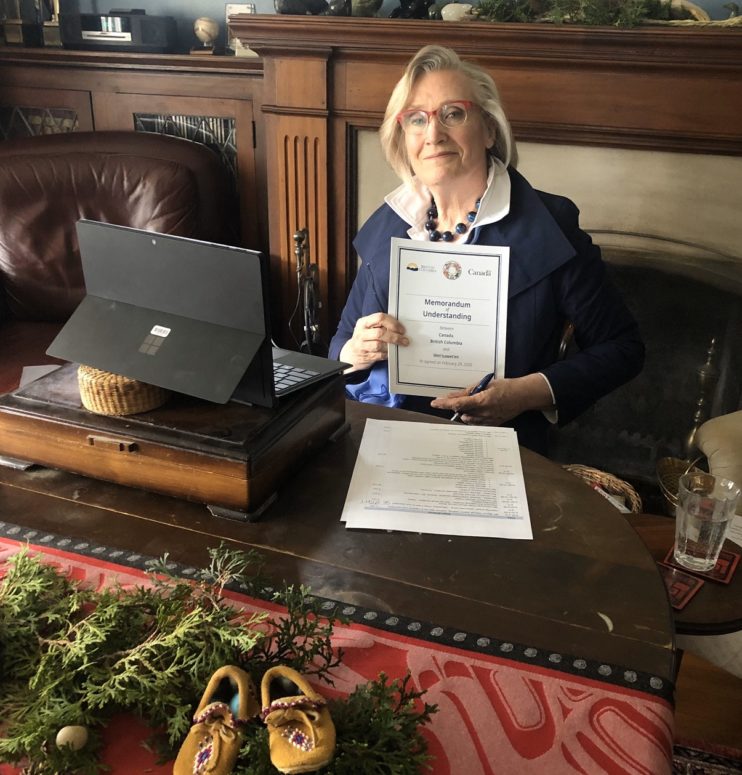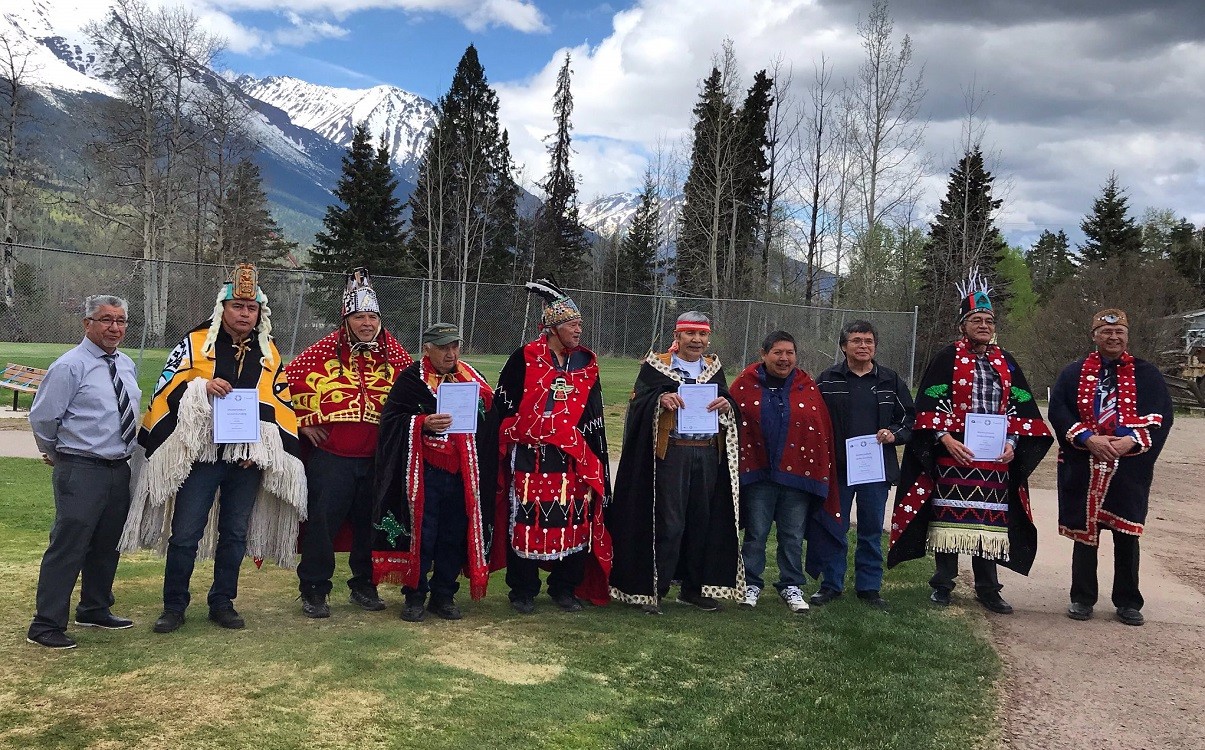Wet’suwet’en, B.C. & Canada Commit To Reconciliation. Heredity Chiefs Signed A Memorandum Of Understanding
Wet’suwet’en Hereditary Chiefs and the provincial and federal governments have signed a memorandum of understanding (MOU) that recognizes Wet’suwet’en rights and title throughout the Yintah and sets out a process to negotiate an agreement on how to implement them.
“With this MOU, we will now begin to work toward a better understanding between Canada and British Columbia, we will be able to strengthen better relationships and establish strong economies. Wet’suwet’en People, regardless of political views and opinions can now visualize certainty. Wet’suwet’en traditions and culture will always remain with the confines of Wet’suwet’en language. Our priorities are to: mobilize safety measures for all Wet’suwet’en People, promulgate Wet’suwet’en existence and sanctify our inviable Wet’suwet’en traditions,” said Wet’suwet’en Dinï’ze Woos, (Frank Alec), Cas Yihk, Gitdumt’en (Bear Clan).
Wet’suwet’en Hereditary Chiefs, Scott Fraser, B.C. Minister of Indigenous Relations and Reconciliation, and Carolyn Bennett, federal Minister of Crown-Indigenous Relations, signed the MOU on May 14, 2020, via videoconference. The MOU was signed virtually to respect guidelines from public health officials to protect the health and well-being of people and communities during the COVID-19 pandemic.
“We are doing this for everyone. The past cannot be changed, but the future can.” Dinï’ze Na’Moks (John Ridsdale), Tsayu (Beaver)
“The MOU is the start of a negotiation process. We have a great deal of work ahead of us to determine how we will implement rights and title together, and reunification within Wet’suwet’en Nation is key to this work moving forward successfully. We are approaching these negotiations with respect and recognition, and have committed to working together with transparency and openness for the benefit of all people who live in the Yintah,” said Scott Fraser, B.C. Minister of Indigenous Relations and Reconciliation.
The MOU commits Wet’suwet’en Hereditary Chiefs and the provincial and federal governments to negotiate a series of agreements that will resolve matters of rights and title outstanding for decades since the 1997 Supreme Court of Canada Delgamuukw-Gisday’wa ruling. Any formal agreements reached as a result of negotiations will require approval by each of the parties.

“The signing of this MOU marks an important step in our work to rebuild our relationship with the Wet’suwet’en and towards affirming and implementing their rights and title. As negotiations begin, a comprehensive, inclusive and transparent engagement process will support the parties so they can work together towards a final agreement on the affirmation and implementation of Wet’suwet’en rights and title. These discussions are breathing life into the 1997 Delgamuukw-Gisday’wa decision, which is part of our country’s work on the path of reconciliation,” said Carolyn Bennett, federal Minister of Crown-Indigenous Relations.
As outlined in the MOU, the three parties will now begin negotiating an agreement on a path to implement Wet’suwet’en rights and title. Topics to be discussed will include Nation reunification, revenue-sharing, compensation, land and resources, child and family wellness, water, fish, land-use planning and decision-making.
Planning is currently underway to establish both internal Wet’suwet’en and external engagement processes to ensure transparency and openness throughout the negotiations. Wet’suwet’en clan members and elected representatives, neighbouring First Nations, municipal governments and other interested parties who live and work in the Yintah will be included.
The MOU and all future agreements will uphold the Aboriginal rights and title recognized and affirmed by Section 35 of the Constitution and align with B.C.’s Declaration on the Rights of Indigenous Peoples Act.
Image Source: @smogelgem
Also, Worth Reading
Minister Bennett Resolves Crisis, But The Real Work Starts For The Wet’suwet’en.









